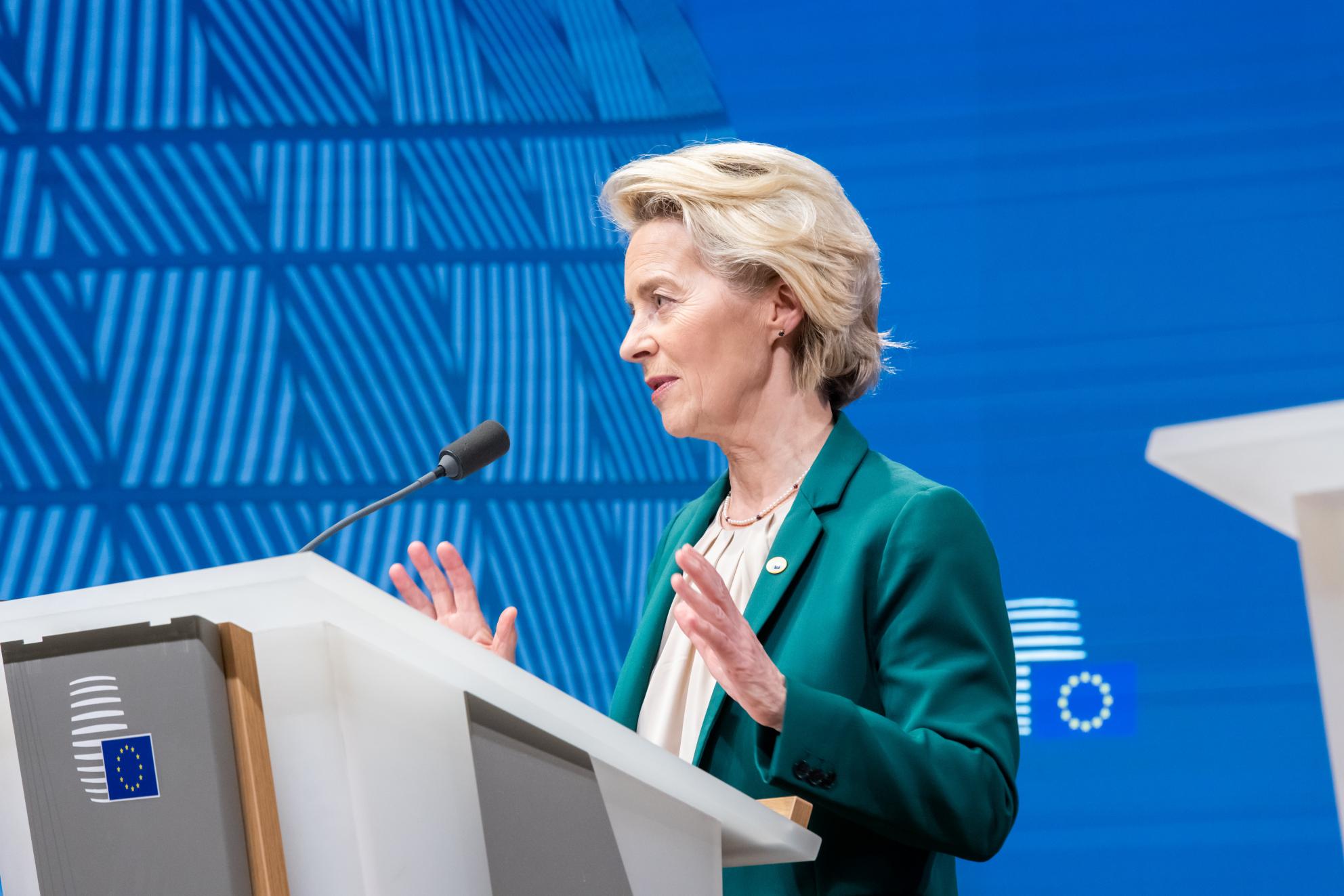While Trump sows economic chaos, the EU must master the art of deal-making to stay competitive. The bloc’s economic future depends on forging smart global partnerships – especially in tech, energy, and resources – rather than turning inward or limiting its economic openness.
Following Mario Draghi’s damning assessment of the EU’s economy last year, the European Commission recently published its ‘Competitiveness Compass’, a new ‘Clean Industrial Deal’ and a €100 billion ‘industrial decarbonisation bank’. All these measures lay out a new economic approach meant to address structural weak points like Europe’s innovation and finance gap and high energy prices and face up to the geoeconomic pressure on both legacy and new industries across the continent.
Yet, internal regulatory and financial measures must be complemented by a proactive economic foreign policy. The EU is deeply intertwined with global partners from whom it secures key resources and technologies, and with whom it needs to partner to push forward important global questions. An energy-poor Europe needs its Southern neighbours, while the European tech sector’s best hope is to build stronger partnerships with Asian partners. In an era of fragmentation, looking outward may be as important as looking inward.
Europe is open for business
At Davos in January 2025, European Commission President Ursula von der Leyen declared that Europe is “open for business.” She contrasted the EU’s approach – supporting local industries and local clean tech value chains – with the more extractive strategies of others, emphasising that this is how Europe intends to diversify supply chains. One of the new tools of the Commission will be Clean Trade and Investment Partnerships (CTIPs), which are meant to be “faster, more flexible and targeted” deals to manage Europe’s strategic dependencies and secure access to raw materials, clean energy and clean tech.
Yet, the EU approach is largely unproven in this regard. The Commission will need to demonstrate that a new approach to global competitiveness, built on stronger partnerships and mutual interests with other countries – notably in the Global Majority – is actually possible. At the technical level, this means developing adequate financing instruments that can facilitate large-scale European investments, including through export credit agencies, building shared innovation ecosystems, and the backbone (energy, connectivity and data) infrastructure to support it. At the political level, it will be necessary to push back against many in Europe who might advocate for a short-term, defensive and protectionist ‘Europe First’ approach and sell them on this vision of a better-managed globalisation built on strategic interdependence.
Redrawing, not reducing dependencies
For a bloc with so much experience negotiating trade agreements, tariff reductions and market access, the EU has little to no experience in proactively and collectively shaping actual investment deals with emerging economies around resources and industrial value chains. Foreign policy, trade and investment, migration and development policy have by and large operated in parallel to each other, but with little effort to find synergies and develop an integrated approach.
Whether on energy, chips or digital platforms, the EU has largely left it to the market to match supply and demand, with little thought for the implication of the resulting dependencies that were created. Existing tools, like EU competition policy, have mostly sought to regulate internal market dynamics and in the eyes of many have stunted the growth of European industry and its ability to compete globally in what has become an increasingly uneven playing field. So far, attempts to rectify these dependencies quickly have hit a wall or are simply insufficient to truly address the scale of the challenge. Examples abound from the first von der Leyen commission, from the Critical Raw Materials partnerships to the Chips Act to the Digital Markets Act, all of which have seen results fall short of lofty ambitions, often due to a lack of tools or financial backing. Addressing the EU’s inter-dependencies upfront, and redrawing critical value chains will require going much further in partnering with both developing and more advanced economies. It will also require an economic diplomacy toolkit fit for industry-specific deals.
Tech sovereignty partnerships with emerging powers: EU-India
Europe’s tech sovereignty requires building a layered digital infrastructure or EuroStack, covering everything from connectivity and data centres to AI applications and digital platforms. This means a major shift in EU digital policy, from regulation to an integrated industrial strategy, including stronger antitrust measures and targeted support across the tech stack. But global partnerships are also crucial – for raw materials, talent, critical value chains, and ultimately to continue to advocate for a free and open internet. The EU must deepen ties with Asian tech leaders and engage emerging powers like India, Brazil and South Africa to shape a shared digital future.
A net-zero industrial deal with the Mediterranean
Europe’s energy security depends on decarbonisation, but also on (future) green energy imports. New hydrogen deals often lack clarity on European demand, and some industries may in fact benefit from importing energy-intensive materials like green iron, rather than hydrogen from neighbouring countries like those in North Africa. The Clean Industrial Deal should turn these changing interdependencies into an opportunity to build a more integrated net-zero industrial geography with Europe’s neighbours – securing supply chains, cutting costs, while building new markets for low-carbon goods.
Building a meaningful European economic diplomacy
European competitiveness depends on much more than supply chain security and trade measures to protect the single market. To thrive, the EU and its member states will need to transform the way they approach third countries, develop a better toolkit for building partnerships with emerging economies that brings together a sophisticated set of diplomatic, trade and investment tools.
New Clean Trade and Investment Partnerships – the first of which will be with South Africa, or digital trade and data partnerships, both proposed by the European Commission could be the vehicles for this upgraded economic diplomacy, but they will need to be substantiated by real deals and additional investments. The upcoming EU-India talks offer one opportunity to demonstrate a new approach to partnership based on deal-making with a complicated partner. The EU and India have clear common interests around tech sovereignty and industrial diversification, but also major divergences in their approaches to decarbonisation, data and Russia. Similarly, the renewed momentum for EU-Mediterranean cooperation is an opportunity to leverage new infrastructure, energy and hydrogen deals and demonstrate the benefits of a joint hydrogen-industrial complex between the two sides of the Mediterranean while reducing dependence on Chinese and Russian imports.
Making the most of these opportunities will require combining political, trade and investment tools, as well as a real effort to scale up bilateral investments, creating shared innovation ecosystems, including facilitating mobility and green skills exchanges. Yet it also requires addressing risks and sensitivities head-on, ensuring that these partnerships are not merely transactional but foster long-term economic alignment, mutual trust, and shared interests.
About the Authors
Alfonso Medinilla is the head of ECDPM’s climate action and green transition team. He focuses on the geopolitics of the global green transition and renewable energy.
Karim Karaki is the head of ECDPM’s economic recovery and transformation team.
Chloe Teevan is the head of ECDPM’s digital economy and governance team.


